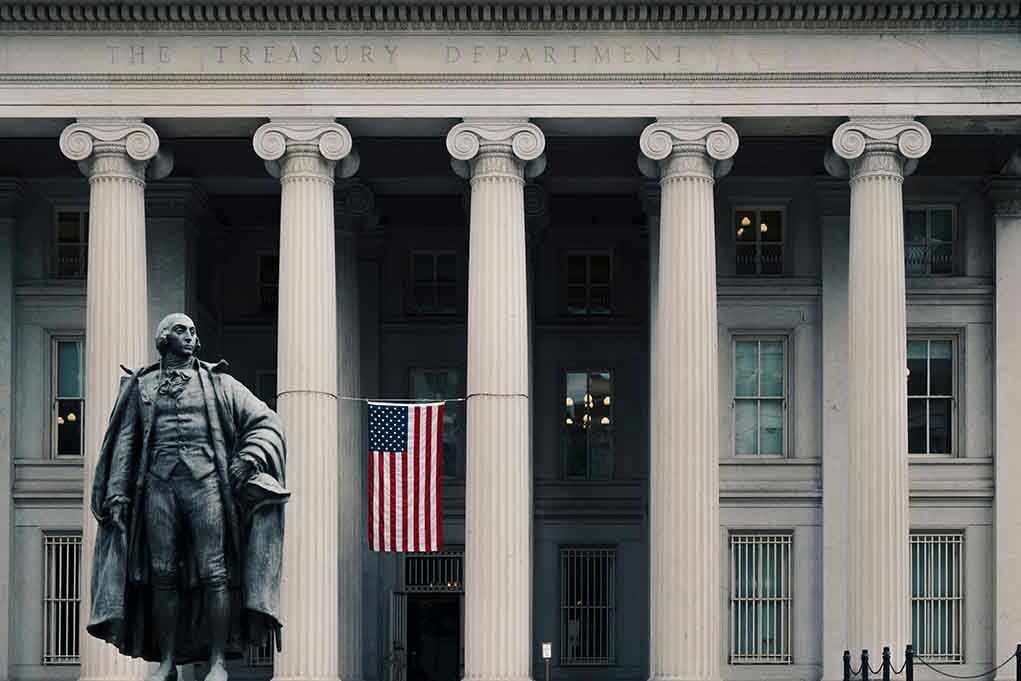
New York City’s fate now hinges on a single phrase: “drop dead”—the Treasury’s blunt warning that the Big Apple will be left to fend for itself if it embraces a radical new fiscal agenda.
Story Snapshot
- U.S. Treasury Secretary Scott Bessent refuses to bail out NYC if Zohran Mamdani’s socialist policies win out.
- Wall Street and business leaders mobilize, warning of dire economic consequences and funding opposition.
- Mamdani’s progressive platform ignites national debate over federal non-intervention and urban fiscal autonomy.
- The infamous “drop dead” phrase resurfaces, invoking historic tensions between Washington and New York.
Treasury’s “Drop Dead” Edict: Echoes from 1975 to Today
Scott Bessent, the sitting Treasury Secretary, delivered a message that ricocheted across Manhattan’s canyons and the nation’s news wires: should New York City elect Zohran Mamdani and enact his progressive, socialist economic platform, there will be no federal bailout. Channeling the ghost of President Ford’s notorious 1975 rebuke, Bessent declared on live television, “Drop dead,” cementing the administration’s stance against what it views as fiscal recklessness. The phrase, loaded with decades of political baggage, instantly reframed the mayoral race into a national referendum on the limits of federal support for urban experiments.
Bessent’s warning came just days after Mamdani’s upset victory in the Democratic primary. The city, still weathering post-pandemic fiscal strain, is now the stage for a high-stakes showdown between federal conservatism and local progressivism. The Treasury’s ultimatum was not just a rebuke but a gauntlet thrown at the feet of every voter, donor, and power broker who cares about the future of America’s largest city.
Wall Street and Business Leaders: Funding the Resistance
Few events unite Wall Street’s titans, but Mamdani’s platform has done just that—albeit through alarm, not admiration. Bill Ackman, billionaire hedge fund manager, pledged millions to defeat Mamdani, echoing a chorus of executives warning of job losses, capital flight, and a mass exodus of the city’s tax base. Their reaction is not mere rhetoric; campaign coffers are swelling, opposition ads are flooding the airwaves, and business leaders are openly strategizing ways to counter progressive momentum. For them, the stakes are existential: New York’s role as a global financial hub is on the line.
Business interests also see the “drop dead” threat as leverage, using it to rally donors and voters behind candidates promising fiscal restraint. The city’s economic lifeblood—real estate, finance, tech—could be at risk if high earners and major employers relocate to friendlier tax climates. The prospect of a city left to sink or swim without federal lifelines has rapidly transformed campaign strategy into crisis management.
Mamdani’s Platform: Promise and Peril
Zohran Mamdani is no stranger to political headwinds. Endorsed by Bernie Sanders and Alexandria Ocasio-Cortez, he rode a wave of progressive activism to the top of the Democratic ticket, promising sweeping reforms: expanded social programs, aggressive taxation of the wealthy, and bold investments in housing and public services. Supporters see him as the answer to decades of affordability and inequality crises; critics, as the architect of economic disaster. The tension between these visions is now amplified by the federal government’s threat to walk away if the city’s fiscal fortunes sour under his leadership.
Mamdani’s campaign has remained silent since Bessent’s televised broadside, refusing to comment on how he would address potential funding gaps or respond to the specter of a federal freeze-out. Voters are left with unanswered questions about contingency plans and the sustainability of his ambitious agenda. Meanwhile, progressive leaders argue that federal resistance is a political tactic, not a financial necessity, pushing back against what they see as scare-mongering from entrenched interests.
Historical Resonance: Ford’s “Drop Dead” and the Risk of Precedent
The Treasury’s invocation of “drop dead” is not just provocative—it’s historically loaded. In 1975, President Ford’s refusal to rescue New York City during its fiscal crisis became a watershed moment in federal-municipal relations, symbolizing the limits of Washington’s willingness to underwrite local mismanagement. Today, Bessent’s echo of Ford’s language is both a warning and a precedent: cities pursuing aggressive progressive reforms may find themselves on their own if budgets unravel.
This precedent isn’t confined to New York. Municipal bond markets are watching closely, as are mayors and city councils nationwide. The message is clear: federal bailouts are not guaranteed, especially for cities seen as fiscally adventurous. Long-term, the outcome of this standoff could reshape the way urban America approaches social policy, budgeting, and the delicate dance between local ambition and national oversight.
Sources:
Fox Business: Treasury’s Bessent warns NYC: No bailout under Mamdani – ‘drop dead’
Fox News: Progressive NYC mayor candidate Mamdani gains traction, plans massive spending increases
Fox Business: Scott Bessent profile and related coverage
Silver Loch: Treasury Secretary Bessent has blunt warning if NYC elects Mamdani




